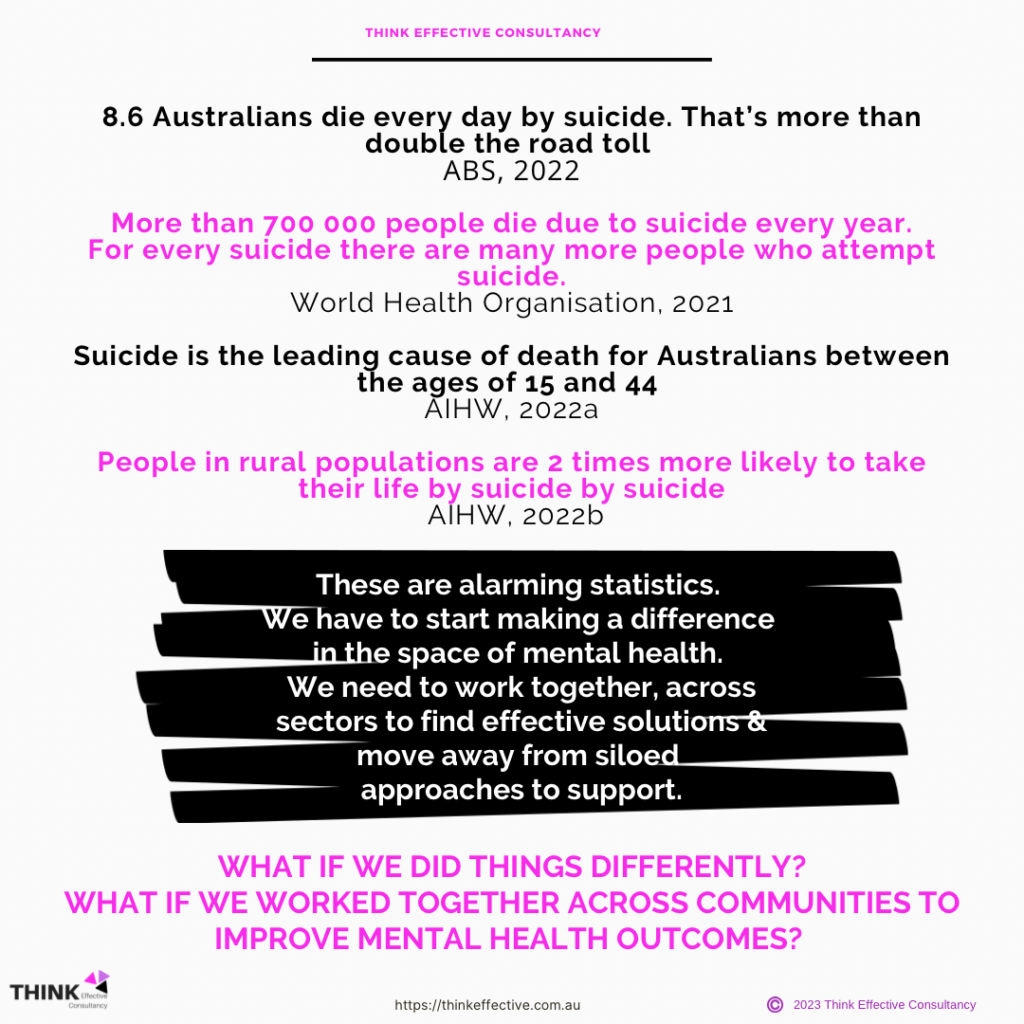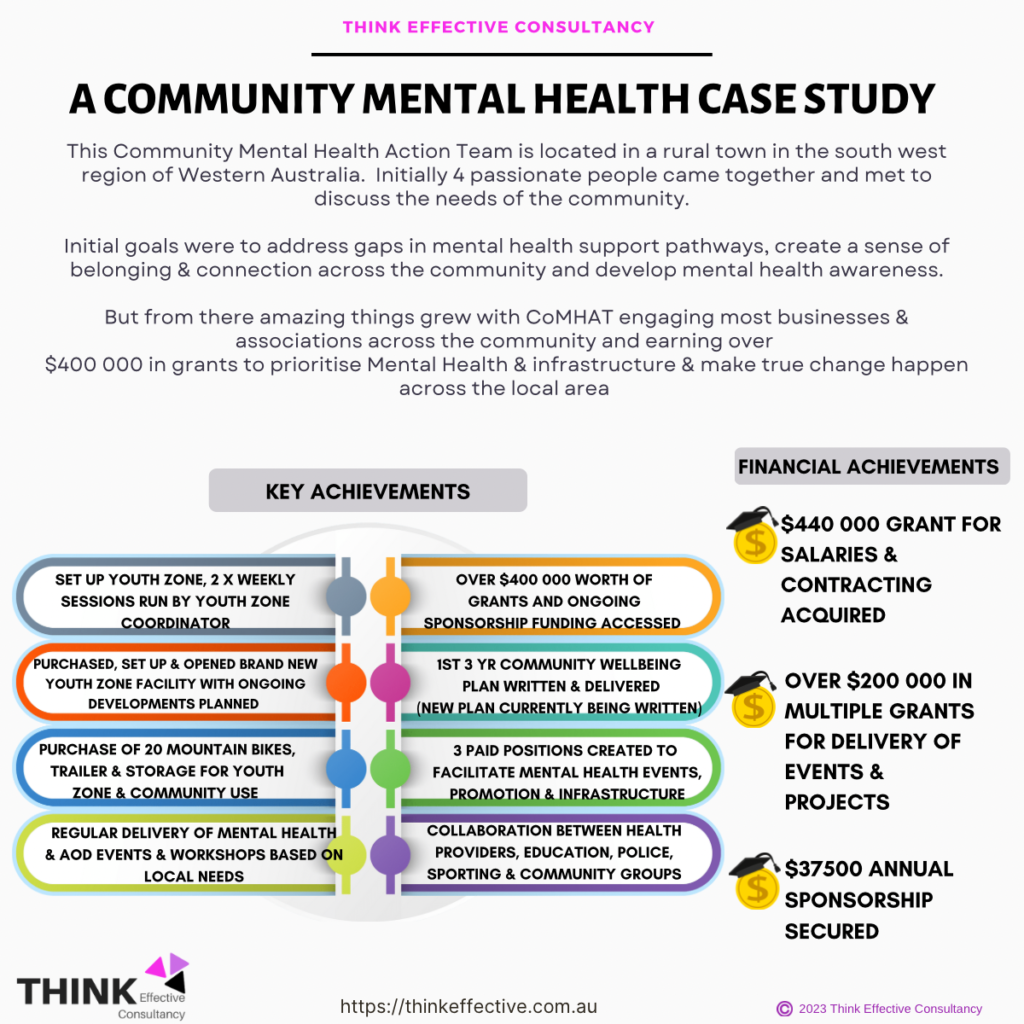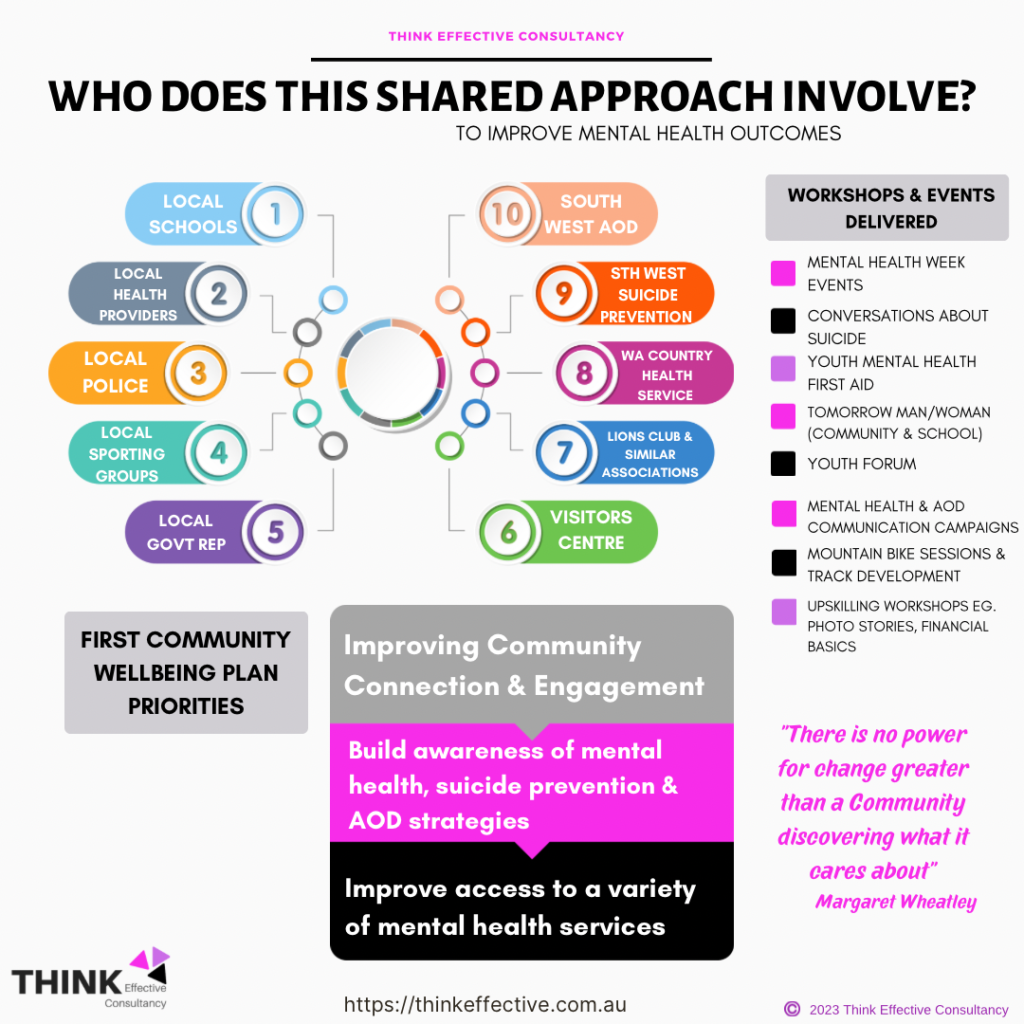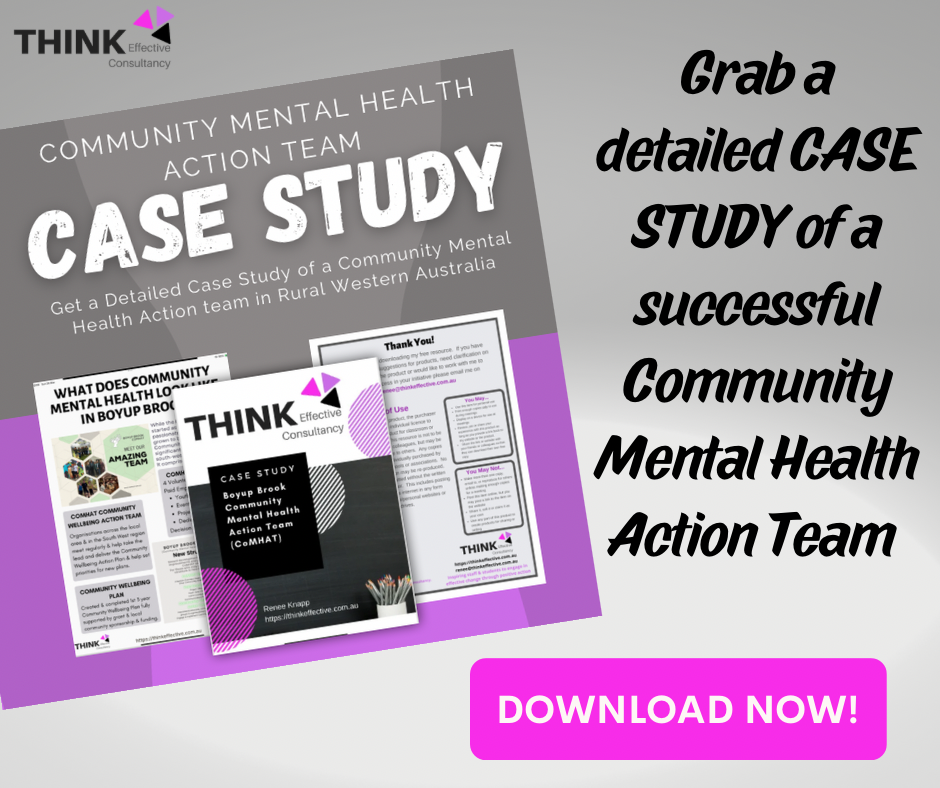I have been to countless mental health conferences and I hear over and over...
A desperate need for a multidisciplinary approach to mental health.
The deep desire to work together to improve mental health outcomes.
The endless amazing ideas from individuals to improve mental health that just are successful but just aren't making the difference we are hoping for.
But we can achieve success!
We can take the amazing strengths that exist in govt sectors, community & sporting groups, and small businesses and utilise a successful process to work together in order to create localised and sustainable change.
Watch my latest video where I talk about the importance of community as a powerful tool to improve mental health outcomes.
If you would like to Learn more about Community Mental Health approaches by clicking the link below
https://thinkeffective.com.au/community-cross-sector-approach-to-mental-health/
As always feel free to share this email with friends & colleagues that you think may be interested.
Please leave a comment and lets started talking more about all that can be done across communities to improve mental health outcomes.
Have a great day!
Renee
About 6 or 7 years ago, I began to realise the significant importance of mental health education in Schools. As someone with lived experience with Depression and Anxiety in both myself and a family member close to me, I knew the importance of taking care of our own mental health. Through my own journey I discovered:
I desperately wanted to see change happen at a School level, but our small staff was already overwhelmed with committees and curriculum commitments so the potential to ask them to form another action team was just not an option. I had spent a lot of time researching school based approaches to mental health such as Kids Matters & Mind Matters in Australia and approached them about the idea of creating a team with community members with the School (myself) sitting in the Chair role. This was met with keen enthusiasm and led me to setting up my first Community Mental Health Action Team (or as we like to call it “CoMHAT”).
Initially our team consisted of myself in the Chair role, our local doctor, our local Community Resource Centre manager and a local business representative/parent. All of these individuals had a shared interest in mental health and were keen to see change happen both within the Education system but also out in the community.
For me this was an opportunity to see beyond the school walls and make a real difference to our students. So much of what was going on for the students and their mental health was happening outside of school. This included their home life, sporting and social groups, social media and so forth.
I set this team up to start looking at the big picture and to start seeing what we could do to improve awareness, education, support pathways and systems that were currently in place. I had never in my Education career engaged with people in other sectors regarding improvements for our system but I soon came to realise that this was a game changer and could make all the difference to mental health approaches both within rural communities, but also in urban settings.
Over the next series of blog posts I will be writing about the steps I took to develop this team and how it has evolved. I will explore:
If you would like to keep up to date with blog posts as they are released, please subscribe to my free newsletter with the link below and you will receive a detailed checklist with all of the steps involved in setting up a Community Mental Health Action Team and a BONUS video that outlines the benefits and development of a cross sector approach to mental health.
In my next blog post I will explore the key benefits of adopting a cross sector or community approach to mental health.
If you have any questions about behavioural expectations or any other areas of interest, please send me an email at renee@thinkeffective.com.au
or check out Community or Cross-Sector Approach to Mental Health | THINK Effective Consultancy
for more detailed information, resources and about how we can work together.
As always, please feel free to share my blog post with friends and colleagues and contact me with any questions.
Have a great day! 🙂
PS Sometimes a blog post just isn't enough and you want to talk to a real person to help you move forward. I totally get it. You can get in contact with me @
renee@thinkeffective.com.au OR
CLICK HERE to get on a Zoom Chat
and we can chat about how I could work with you, your team or your school to make your vision or ideas come to life.

Accessing over $400 000 worth of grants to improve mental health.
Acquiring $200 000 worth of funding for salaries alone (rather than always having to rely on people volunteering their time)
Building brand new facilities, buying new equipment and bringing previously inaccessible education and events to a rural town.
This has all happened in a rural town in Western Australia since adopting my COMMUNITY APPROACH TO MENTAL HEALTH.
For those of you who may not know, I began my Community Mental Health in my own home town. I spend a lot of time talking across Australia about the benefits of this model but it is this foundational journey that still brings me so much pride.
I wanted to take this opportunity to share with you what a group of local people can achieve whether they are in a small or larger community when they work together to improve mental health and wellbeing.
Below is some information about key achievements this Community Mental Health Action Team have achieved since I began working with them in 2016.


